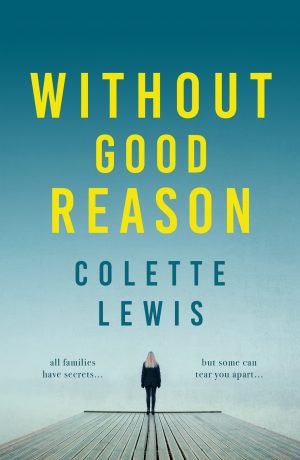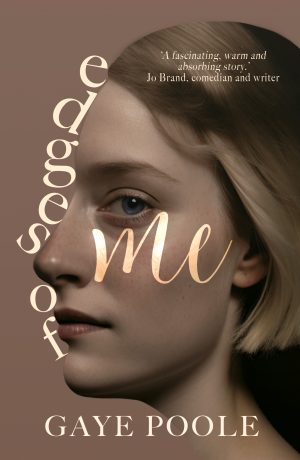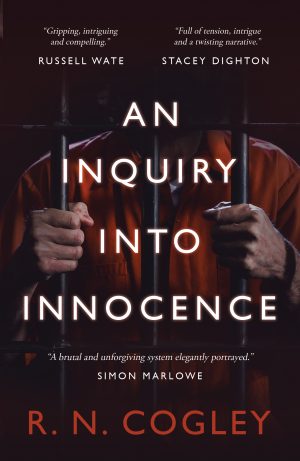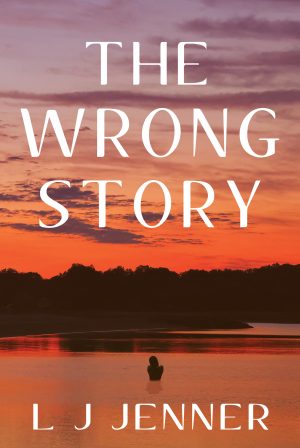Every year on October 10th, World Mental Health Day serves as a powerful reminder that our emotional and psychological wellbeing deserves just as much attention as our physical health. In a world that often celebrates hustle and productivity, this day invites us to slow down, check in with ourselves and others, and break the silence surrounding mental health struggles.
In this spirit, we’re proud to spotlight some of our incredible authors who have championed mental health representation in their work.
L. J. Jenner, author of The Wrong Story, says…
“Arguably, it’s never been easier to talk about mental health. It’s well and truly on the media agenda now, many people are apparently much more open about their mental health issues, and we’re all told that ‘it’s good to talk’.
And yet, I’m not sure that we do actually talk about mental health. Not really. The feelings below the headline of ‘I struggle with my mental health’- the pain, darkness, sadness and despair – are still incredibly difficult to voice. And to listen to.
Even when it comes to treatment, many people turn to medication rather than talking therapy. In 2023/4, 12.5% of the adult population reported taking medication for a mental health condition compared to just 5% who were in therapy. And yet research has shown that therapy is at least as effective as medication and for some conditions -and for some people – it can be even more effective.
Despite the many advantages of therapy (it doesn’t have any of the potential side effects and dependency issues associated with medication for a start) there are many reasons, someone might choose drugs over talking; time to attend appointments and cost being two obvious ones.
But I think another reason why people shy away from talking treatment is fear of the unknown. My novel, The Wrong Story, aims to demystify therapy, to shine a light on what actually happens in the therapy room, and inside the therapist’s head. Inspired by some of the incredible people I worked with during my fifteen years as a psychotherapist, in hindsight it’s a kind of love letter to therapy.
It is fiction – and unapologetically sad at times – but it is real and true to my experiences as a therapist. Because real life is also sad at times, and if we really want to get better at talking about difficult feelings, then collectively we have to get better at hearing difficult stories.”
Gaye Poole, author of Edges of Me, says…
“As a naïve young nurse, back in the 1980’s, I was terrified to enter the renowned London psychiatric hospital, The Maudsley, for my first shift. It was the sister hospital The Royal Bethlehem, or Bedlam as it was known, that was responsible for my tainted preconceptions and unwarranted fears. Originally a religious order and refuge for strangers in need; over time it became known as an asylum for ‘mad people’ and the term Bedlam arose.
In Shakespeare’s plays the term, ‘Bedlam’, was well known enough to be used to explore the question of ‘who was mad and who was sane?’ and the concept of moving from one end of that spectrum to the other was readily accepted. In society today, I think we have forgotten this and feel that there is a ‘them’ and ‘us’ in mental health. I want to remind people that it’s all of us ‘together’ – as in all of life.
Edges of Me arose from a real encounter I had as a mental health nurse on shift at the Maudsley Hospital where I met a ‘sad’ young physio student who got caught up in the hospital system. I wanted to explore that imagined resultant friendship, their search for identity and shared mental health struggles using the latterly little-known borderline personality disorder as a way to show the importance of understanding such difference without judgement.”
Paul Crawford, author of The Wonders of Doctor Bent, says…
“What if your brain was not your own and you killed people? Would you deserve to go to prison or a hospital?
On World Mental Health Day, we can only ask again for a humane approach to those with serious mental disorders who tragically hurt others, including themselves. My latest novel, The Wonders of Doctor Bent should resonate with any reader who cares about such individuals suffering conditions such as paranoid schizophrenia and who end up locked away, sometimes for the rest of their lives.
In the novel, the worlds of Jason Hemp, an English lecturer, and Dr Bent, the unlikely Medical Director of high-security psychiatric hospital, Foston Hall, come together in a dark tale of murder, revenge and abandonment. Attempting to track down his twin brother’s killer, Jason finds his life unravelling in unexpected and frightening ways. Visionary Dr Bent attempts to reform Foston Hall into a more humane, compassionate place, all while facing his own mental health challenges. He strives to balance the prisonlike culture at Foston Hall by making the conditions less punitive. The staff call these reforms ‘his wonders’ yet not everyone agrees with his efforts, especially right-wing politicians and the media. The question is can he succeed?
Behind the forbidding security fence of Foston Hall, out of public sight, Dr Bent views indefinitely detained patients as people not monsters. He is compassionate to those with serious mental health challenges who pose a grave and immediate danger to others (and themselves). He believes that patients in high-secure hospitals deserve a caring and comfortable environment – a place for recovery and growth, not a prison.
On this important day, we all need to check our compassion levels. We all need to consider how to view people judged to be acting with diminished responsibility when committing terrible acts.”
R. N. Cogley, author of An Inquiry Into Innocence, says…
“Mental health is a very important topic, especially in today’s society. It’s crucial to many aspects of life, both professional and personal, and is considered a basic human right by the World Health Organization. As such, increasing awareness of mental health matters. And it matters for a variety of reasons, including: it aids in reducing stigma and misconceptions of mental illnesses; it allows people to understand the ways in which mental illness can impact daily life; it provides education, which in turn may foster a greater recognition of certain illnesses; and it can provide significant benefits in mental health advocacy, which can influence policy, legislation, and decision-making.
One way to increase awareness of mental health is through representation in stories, both fiction and non-fiction. These stories, though they can be difficult to read, provide a platform within which mental health can be explored, discussed, and dissected. For example, my novel An Inquiry Into Innocence examines a variety of issues related to mental health. The main character, Eli, is dealing with the consequences of surviving same-sex domestic abuse, while also trying to unlock his repressed memories to prove his innocence. In addition, the novel is set in a prison environment, an institution where mental health issues are high. The novel also explores mental health within the legal system. It looks at two aspects of Irish insanity law: fitness to be tried and the insanity defence – topics I researched heavily during my undergraduate and postgraduate degrees.
Mental health awareness is a topic that cannot be forgotten. It is paramount that we acknowledge the importance of mental health, increase its awareness, and ensure that those who are struggling receive the help they require.”
Colette Lewis, author of Without Good Reason, says…
“My day job is writing psychological suspense novels, and for the past eight years I’ve also been a trustee and fundraiser for a local charity supporting young people with disabilities. I have two children, one of whom has lifelong disabilities and will always rely on adult support. Like many parents in this position, I’ve also become a campaigner for better services, particularly around mental health.
Government data shows that one in four adults in England experiences a mental health problem each year. Rates are even higher amongst disabled people and their Carers, who report lower happiness and greater anxiety and loneliness (ONS, 2024). The charity Sense found that nearly two-thirds of disabled people are chronically lonely. Meanwhile, overstretched mental health services struggle to meet demand, with long waits for treatment and frequent exclusion of people with learning disabilities, since talking therapies are often dismissed as unsuitable.
Against this backdrop, it would be impossible for me to ignore mental health in my fiction. In Without Good Reason, my protagonists confront grief, depression, suicide and self-harm. Corine, a psychiatrist mourning her husband, collides with Mae, a teenager who self-harms and has been imprisoned for attacking her mother. At its core, the novel asks: why would a seemingly well-balanced girl commit such violence? It probes motherhood, maternal indifference, and being ‘childless not by choice.’
Yet I remain hopeful. Alternative therapies – art, music, play, equine – have been transformative for my daughter, easing anxiety and boosting confidence. Everyone deserves access to approaches that work for them. When I asked my daughter what might help with anxiety and loneliness, she grinned, hugging her Billie Joe Armstrong cushion: “This.” So, while we push for systemic change, let’s keep talking about mental health, and about the small comforts – Billie cushion included – that make life a little lighter.”

Check out the fantastic books by these authors!












